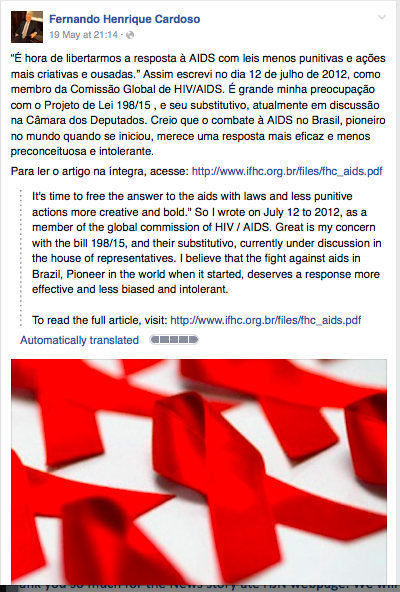HIV/AIDS advocacy groups are preparing for a fight against a piece of legislation that would heighten the penalty for knowingly exposing a sexually transmitted disease to another in Alabama. Research shows stigmatizing and criminalizing HIV doesn’t reduce the transmission rate, and it actually discourages people from getting tested, Kathie Hiers, executive director of AIDS Alabama, said.
Rep. Juandalynn Givan’s bill is vague and makes is possible for spreaders of any sexually transmitted disease to be charged with a felony, she said.
“The way the bill is written if anyone puts anyone at any risk for any STDs or HIV it can be a felony,” Hiers said in an interview with AL.com. “Now, you can interpret that as any woman who has HPV could be guilty.”
She said 85 percent of women have HPV, a sexually transmitted disease, and many don’t even know it.
Givan, D-Birmingham, said she stands behind her proposed legislation.
“This piece of legislation simply imposes greater penalties for those who maliciously with the intent to recklessly by some type of malice or reckless disregard for the life and the health of another human being intentionally goes out and infects another person,” she said.
Givan said the intent of the bill isn’t to keep anyone from being tested for HIV.
She said Alabama law already defines a sexually transmitted disease, but she would be open to amendments to her bill.
The lawmaker decided to propose the legislation, heightening the penalties under current law from a Class C misdemeanor to a Class C felony, after hearing about a Montgomery pastor confessing his HIV-positive status to his congregation and admitting he engaged in sex with unknowing women.
A Class C felony carries a prison sentence of one to 10 years. A Class C misdemeanor carries a maximum prison sentence of three months.
Givan thinks current law is too lenient, and people who are intentionally infected are too embarrassed and afraid to come forward to law enforcement.
Alabama is one of only 16 states in the nation where it is a misdemeanor offense to knowingly expose another person to a sexually transmitted disease, she said.
Juan McFarland, the former pastor of Shiloh Missionary Baptist Church in Montgomery, admitted during a sermon in September 2014 to being HIV-positive since 2003 and having sex with multiple women who weren’t aware of his status.
Montgomery police haven’t charged McFarland with any crime, but McFarland lost his job.
“It is pretty severe if you have been infected with HIV for a period of time and are having sexual intercourse with multiple women,” Givan said in a previous interview with AL.com. “You can only imagine that someone may have become infected.”
The Infectious Diseases Society of America (IDSA) and the HIV Medicine Association (HIVMA) released statements against the criminalization of HIV.
“We oppose legal statutes that undermine public health by criminalizing transmission of HIV, viral hepatitis, tuberculosis and other infectious diseases,” the groups stated in a press release. “Studies have documented that these laws discourage individuals from being screened and treated for conditions when early diagnosis and treatment of infected individuals is one of the most effective methods to control the disease.”
Resources should be put behind evidence-based prevention methods not towards the criminalization, the groups said.
Hiers said everyone should take personal responsibility for protecting themselves against STDS, and criminalizing diseases doesn’t help.
“I think it lulls people into a false sense of security because if you make it all the responsibility of the HIV-positive person or the person who has the sexually transmitted infection then people may not practice universal precautions,” she said.
In this day and age, Hiers said everyone having sex needs to assume the other person has a sexually transmitted disease until they reach the point they are in a monogamous relationship and have been tested.
The Sero Project, a group working to end the criminalization of HIV, is expected to get involved and lead a grassroots effort against Givan’s bill if the lawmaker doesn’t table it herself.
Since research has proven that criminalizing HIV doesn’t reduce transmission, Sean Strub, the executive director of the group, said several states are considering decriminalizing it. Iowa became the first state to do so last year.
“So it is truly ironic that while much of the rest of the country is looking at changing these statutes, to slow the epidemic, a legislator in Alabama wants to make the statute more punitive, which will most likely make the epidemic in Alabama worse,” he said. “I’m sure that’s the opposite of what the legislator intends, but it is the likely outcome, which is tragic. Stopping this bill is, from Sero’s perspective, the single most compelling HIV prevention priority in Alabama right now.”
 Robert Hejzák, photo: Czech Television
Robert Hejzák, photo: Czech Television Vladimír Valenta, photo: Filip Jandourek
Vladimír Valenta, photo: Filip Jandourek